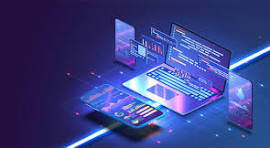By Admin
October 1, 2025
4 min read
23 views

The 21st century is often called the Age of Artificial Intelligence (AI). From smartphones that recognize our voices to cars that can drive themselves, AI is no longer science fiction—it’s part of our daily lives. While some people see AI as a tool for convenience, others view it as a revolution that will reshape economies, healthcare, education, and even the way we think about creativity.
In this blog, we’ll explore how AI is transforming the 21st century, its real-world applications, the challenges it poses, and what the future may hold.
At its core, Artificial Intelligence is the ability of machines to mimic human intelligence. This means they can learn from data, make decisions, and even improve themselves over time. Unlike traditional software that only follows pre-defined instructions, AI adapts and evolves.
Today, AI is powered by machine learning and deep learning algorithms, which allow systems to recognize patterns, analyze massive amounts of data, and generate insights faster than any human could.
You may not notice it, but AI is already everywhere:
AI is no longer a futuristic idea—it’s quietly shaping how we live every day.
AI is saving lives. From robotic surgeries to predictive diagnostics, AI enables doctors to provide faster and more accurate treatments. Imagine an AI system that can detect heart disease before symptoms even appear—that’s already happening.
Personalized learning powered by AI is changing classrooms. Students can now access AI tutors that adjust lessons to their pace, making education more inclusive.
AI-driven analytics help companies predict market trends, manage risks, and even automate decision-making. This is why businesses that adopt AI are often more competitive.
Autonomous vehicles are one of the biggest promises of AI. While still being tested, they have the potential to reduce accidents, save time, and lower pollution.
Surprisingly, AI is not just logical—it’s also creative. AI-generated art, music, and even literature are becoming mainstream. The line between human and machine creativity is blurring.
Despite its benefits, AI also brings challenges:
The challenge of the 21st century is not just developing AI, but ensuring it is used responsibly.
Looking ahead, AI will likely become as essential as electricity. Some possibilities include:
The key will be balancing innovation with ethics, ensuring AI benefits humanity as a whole.
Artificial Intelligence in the 21st century is not just a tool—it’s a transformative force. It is reshaping industries, improving lives, and raising important questions about the future of work, privacy, and ethics. While there are challenges, the opportunities AI brings are far greater.
We are at the beginning of a journey where humans and intelligent machines will co-exist, creating possibilities we once thought impossible. The real question is: Are we ready for it?
Content Creator & Writer